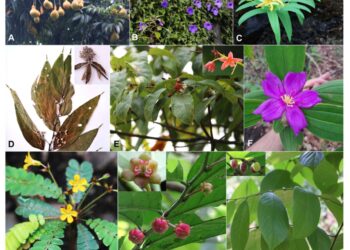May 8, 2025| Bio-diversity News| wons

May 8, 2025| Bio-diversity News| wons

May 3, 2025| Bio-diversity News| wons
April 27, 2025| Bio-diversity News| wons
April 16, 2025| Bio-diversity News| wons
April 4, 2025| Bio-diversity News| wons
March 26, 2025| Bio-diversity News| wons
March 24, 2025| Bio-diversity News| wons
March 17, 2025| Bio-diversity News| wons
 Views Last 7 days : 1005
Views Last 7 days : 1005 Views Last 30 days : 4137
Views Last 30 days : 4137 Total views : 25277
Total views : 25277